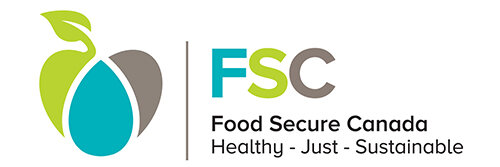
We are better together.
The Coalition for a Just Recovery NL is a growing number of agencies from across our province representing thousands of Newfoundlander & Labradorians. Together, we are outlining a vision for an inclusive, empowering and just recovery for NL.
© Barrett & MacKay Photo
We ask that the Government of Canada, in planning its investments in our economic recovery, look to these recommendations as a guide to maximizing both their social and economic impact. It is critical to recognize that the social and economic impacts of the pandemic are not distributed equally. That must shape how we approach recovery. Specifically, we collectively agree that:
Individuals who have been the most disproportionately impacted by the pandemic must be prioritized and engaged in recovery efforts.
Economic development and community development reinforce one another.
Our recovery must enable systemic change.
Universal Design thinking is critical across all our recovery efforts and investments.

Our proposed Just Recovery for Newfoundland and Labrador consists of 10 defining initiatives.
©Benjamin Heath Photo
To be clear, these are not meant to capture the full range of social change our organizations and the communities we serve want to see. Instead, we aim to answer a specific question: if the Government of Canada is going to invest in restarting our economy, where will that investment do the most good?
As a Coalition, we believe these ten defining initiatives are the big ideas to move us towards innovative policy and program solutions for Just Recovery:
Invest in reconciliation.
Pilot a widespread basic income program for individuals between 18 and 64.
Invest in an expanded short-term child care cost subsidy program as a bridge to a universal, non-profit day care model.
Accelerate pathways to labour-market attachment for the most disadvantaged.
Invest in retraining and labour force readiness.
Strengthen local economic development and supply chains.
Move forward with Universal Drug & Dental Coverage.
Invest in affordable and supportive housing.
Strengthen public transportation.
Improve access to broadband internet.
1. Invest in reconciliation.
Communities across Newfoundland and Labrador are coping with the cross-generational impacts of colonization. Investments in economic recovery must support the objectives of the Truth and Reconciliation Commission and should prioritize Indigenous organizations and communities as both partners and leaders in this work.
Investments and progress must recognize the unique needs of Indigenous communities both living on and off reserves (rural, remote, urban and Northern), and embrace the rich diversity that exists amongst Canada’s Indigenous peoples. It is also important to recognize and account for the high costs of living, working, and travelling in Northern Labrador in particular.
2. Pilot a widespread basic income program for individuals between 18 and 64.
Newfoundland and Labrador is an ideally-sized jurisdiction to pilot the provision of a basic income. Specifically, we would support a model based on one of the policy options advanced by Basic Income Canada. This is the single policy intervention that would do the most to make a difference in the lives of all the diverse populations our organizations serve, by providing people with the resources they need to make the choices that are critical to their wellbeing.
Additionally, a basic income will be a particularly effective economic stimulus due to the high marginal propensity of consumption for lower-income households. Finally, a universal basic income would support the sustainability of communities dependent on seasonal employment and the gig economy, something that the current EI system is not well-designed to handle.
3. Invest in an expanded short-term child care cost subsidy program as a bridge to a universal, non-profit day care model.
There is ample evidence regarding the developmental, social, and economic benefits of universal childcare. In Newfoundland and Labrador, we suggest that an immediate, strong investment be made in the current child care subsidy program in the short term to allow more families to avail of this support, more children to access these vital developmental supports, and more people - primarily women - to enter the labour market. This should include opening up this program to the many families accessing non-regulated providers, and raising the associated income threshold.
Advancing women’s economic participation drives economic growth, while boosting the income of Canadian families. Further investments should be directed towards the establishment of a universal non-profit daycare model for the province.
While giving more women the opportunity to have economic independence, a universal, non-profit daycare model more importantly ensures that children across the socioeconomic spectrum receive the same access to educational opportunities. Making affordable, high-quality, early learning development and childcare accessible to all families will enhance children’s well-being while also growing the economy, promoting gender equality, and increasing women’s labour force participation.
4. Accelerate pathways to labour-market attachment for the most disadvantaged.
Equitable access is critical to ensuring that individuals facing the greatest barriers to meaningful engagement in the workforce can participate in programs without risking benefits and support systems they have come to rely on.
To achieve this requires broadening eligibility of programs, allowing for and encouraging the use of overlapping benefits across systems (e.g. housing subsidies, drug benefits, etc.) for an extended transitional period; and investing in digital connectivity for rural, remote, Northern and low-income communities.
5. Invest in retraining and labour force readiness.
The combined impact of a universal basic income and universal childcare would be to massively increase the number of people who can engage in the labour market. Many of these new entrants will have faced significant and systemic barriers, and will face new ones created by the pandemic. An investment in training and labour force readiness for these entrants is essential. Additionally, access to these programs will help equip people for long-term sustainable employment in growth fields.
With the technology sector growing exponentially in NL and facing challenges finding skilled local labour, there is a need for training and incentives, particularly for currently underemployed women and youth. Participation of these groups in the sector will provide a much needed labour force along with boosting their economic independence.
6. Strengthen local economic development and supply chains
A continuous circulation of value in communities is needed now more than ever to give local businesses and entrepreneurs the opportunity to flourish during this recovery period. Incentives for customers to buy local, benefits for businesses that hire and buy local, investments in social enterprises, as well as leveraging community benefit agreements and procurement legislation (particularly the re-tabling of Bill C-344) to maximize the regional impact of public expenditures are essential.
As recovery investments are made in partnership with municipalities and provinces, purchasing provisions to target locally driven social outcomes will be critical to maximize the impact of these funds. Locally, there is a vibrant group of social enterprises who can provide a social value add to infrastructure or program spending. Federally, the implementation of the Social Innovation Strategy is a tremendous opportunity to make these investments happen.
7. Move forward with Universal Drug & Dental Coverage
Implementation would produce immediate improvements in health outcomes and improve labour mobility with employees no longer dependent on their employers for coverage. Additionally, implementing a universal drug & dental plan would remove one of the key barriers to leaving the income support system, which is loss of drug & dental benefits.
As we reflect on the human toll of the COVID-19 pandemic and its particular relationship to underlying health conditions and risks. As we look ahead to a strong and diverse labour force, Universal Drug and Dental Coverage enhances the ability for all Canadians to maintain their well-being.
8. Invest in affordable and supportive housing
Self-isolation and social distancing is impossible for homeless and precariously housed people. The pandemic has shown more explicitly than ever that access to safe, affordable, accessible and adequate housing is a public health necessity.There is a clear need to rapidly increase affordable housing stock and grow federal investments in programs to redirect individuals away from shelter services and into supportive and transitional housing programs. Should the Government of Canada seek to make investments in capital infrastructure, there is no better place to do it.
Investing in the transformation of underused buildings and land into affordable housing, increasing flexibility for projects to move forward within the National Housing Strategy, and accelerating the progressive realization of housing as a Human Right as laid out in the National Housing Act will ensure community safety in the pandemic, provide a foundation for people to thrive, support diverse local neighbourhoods, and provide an economic stimulus.
9. Strengthen public transportation
Transportation is one of the most significant barriers that people face on a daily basis in accessing their basic needs; including affordable housing, healthcare, and employment opportunities. There are many communities in Newfoundland and Labrador that are not served by any regular transportation service, and others where existing transportation links could be strengthened and made more accessible in partnership with the many different agencies looking to enhance service provision.
10. Improve access to broadband internet
There is a profound digital divide in Newfoundland and Labrador. Whole communities are cut off from vital information and resources, along with virtual learning and online health (including mental health) services. Improving access to broadband internet is critical to equitable access to services, and to enabling a broad-based economic recovery. In some cases this is a call for the creation of the necessary physical infrastructure, but in other communities there’s a need for programs that expand access to broadband for those who don’t currently have it. The digital divide is particularly evident within vulnerable populations, many of whom face multiple barriers to being a part of a digital community. These barriers include literacy and poverty as well as access to necessary assistive technology.
Image credit: https://techdaily.ca/

A Growing Chorus
Signatories to our letter to the Government of Canada represent the members of the Coalition for a Just Recovery in NL. This is a growing list of organizations in our province which currently includes:
Nancy Reid, Executive Director, Coalition of Persons with Disabilities NL
Lisa Browne, CEO, Stella’s Circle
Kim Campbell-McLean, Executive Director, AnânauKatiget Tumingit Regional Inuit Women’s Association
Dan Meades, Provincial Coordinator, Transition House Association of NL
Sheldon Pollett, Executive Director, Choices for Youth
Paula Sheppard, CEO, Provincial Advisory Council on the Status of Women
Joshua Smee, CEO, Food First NL
Frank Skeard, Ward Councillor (Glenwood), Qalipu First Nation
Gena Decker, Housing Support Worker, Labrador West Housing & Homelessness Coalition
Darrell Jackman, Executive Director, Smallwood Crescent Community Centre
Jennifer Heffer-Elson, Executive Director, Labrador Friendship Centre
Stacey Howse, Acting Executive Director, First Light. St. John’s Friendship Centre
Darren Feltham, Executive Director, Conservation Corps NL
Doug Pawson, Executive Director, End Homelessness St. John’s
Elaine Balsom, Executive Director, Single Parents’ Assocation
Kimberly Dawson, Executive Director, Empower - The Disability Resource Centre
Laura Winters, Executive Director, St. John’s Status of Women Council
Joanne Thompson, Executive Director, The Gathering Place
Angela Crockwell, Executive Director, Thrive
Kimberly Orren, Co-Founder, Fishing for Success,
Kerri Neil, Co-chair, Social Justice Co-operative NL
David Brake, Head, The Essential Transit Association
Wendolyn Schlamp, Executive Director, YWCA St. John’s
Michelle Gushue, Elizabeth Fry of Mainland NL
Robyn LeGrow, Executive Director, Jimmy Pratt Foundation
Sigrid Kuehnemund, Vice President of Wildlife and Industry, World Wildlife Fund - Canada
Pablo Navarro, Chair, Common Ground CDC
Penelope Rowe, CEO, Community Sector Council NL
John Abbott, Chief Executive Officer, Canadian Mental Health Association of NL
Patrick Park-Tighe, Executive Director, People of the Dawn Indigenous Friendship Centre
Jeffrey Normore, Supervisor, Canadian Council on Rehabilitation & Work (CCRW)
Cheri Butt, CEO, Women in Resource Development Corporation (WRDC)
Tree Walsh, Principal, Harm Reduction Consultant
Gillian Pearson, Founder, Parents for Affordable Childcare NL
Hope Colbourne, Executive Director, Newfoundland and Labrador Association for Community Living
To become a signatory, join the coalition and add your voice to this work simply fill out the form below and we’ll be in touch. While we welcome all voices, the website will be updated to include one person representing each organization.
This work is also endorsed by the following national organizations, many of which are leading these critical conversations across Canada.















